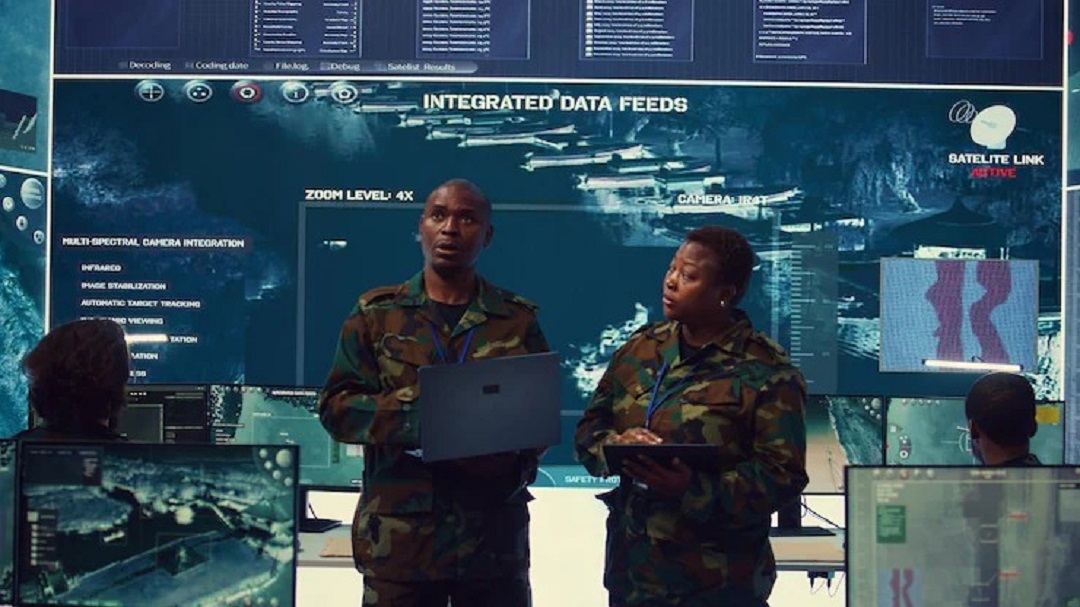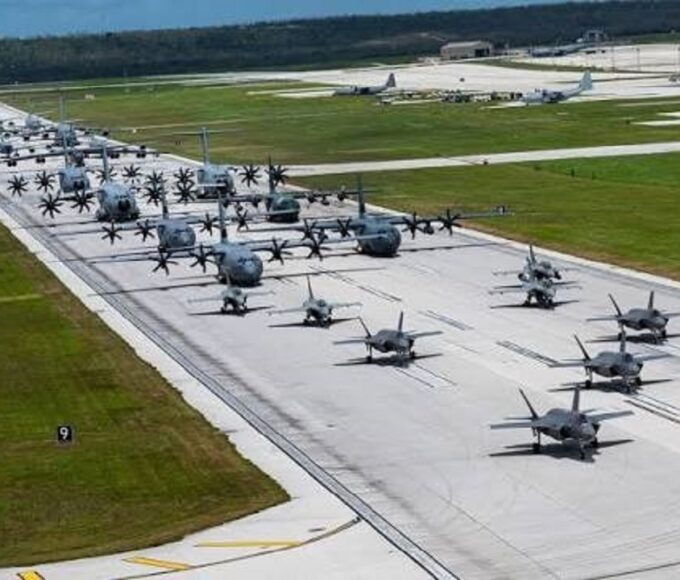CYBERWAR GAMES: SHOULD AFRICAN MILITARIES JOIN THE TREND?

Cyberwar games have become indispensable to modern military strategy. Around the world, armed forces simulate digital battles to test defences, sharpen offensive skills, and prepare for real cyber conflicts. Exercises such as the U.S. Cyber Command’s “Cyber Flag” and NATO’s “Locked Shields” bring together thousands of participants each year to rehearse responses to state-backed hacking, ransomware attacks, and digital sabotage of critical infrastructure.
For African militaries, long focused on conventional warfare and counterinsurgency, these developments raise a pressing question: should they join this global shift toward cyberwar simulations to strengthen national security in an era when wars increasingly begin online?
Related Article: GLOBAL SECURITY WATCH – LESSONS FROM NATO FOR AFRICAN REGIONAL DEFENCE COOPERATION
Africa’s rapid digital expansion has opened both opportunities and vulnerabilities. Internet penetration now exceeds 40% in many countries, and mobile money systems in Kenya, Ghana, and Nigeria have transformed economies. Yet the same connectivity exposes critical weaknesses. In 2021, a cyberattack on South Africa’s Transnet port authority disrupted international trade, while ransomware crippled Ethiopian financial systems in 2023. The continent’s militaries, often underfunded and short on cyber expertise, now face a mix of domestic criminal syndicates and foreign state-backed actors probing their defences. Without proactive preparation, including simulated cyberwar games, these forces risk being caught unprepared in future hybrid wars where digital strikes precede physical conflict.
The advantages of such simulations are clear. Cyberwar games help develop technical competence in network defence, intrusion detection, and ethical hacking skills still scarce across much of Africa. Rwanda’s defence sector has begun integrating cybersecurity training inspired by international models, showing how tailored initiatives can strengthen readiness. Exercises also promote coordination between military, intelligence, and civilian agencies, a crucial step in countries where institutional silos often delay responses to crises. Moreover, these games can expose vulnerabilities in critical national infrastructure from energy grids to election systems allowing governments to shore up defences before they are exploited. For resource-constrained militaries, virtual training provides an affordable, high-return alternative to traditional live-fire exercises.
Still, challenges remain. Most African nations devote less than two percent of GDP to defence, with cybersecurity receiving only a fraction of that. According to UNESCO, fewer than 10,000 cybersecurity specialists graduate annually across the continent far short of global demand. Infrastructure limitations, including unreliable electricity and patchy broadband, make running sophisticated simulations difficult. Corruption and political instability can further erode trust in multilateral training or divert resources intended for defence modernization.
Regional cooperation could help bridge these gaps. The African Union’s 2014 Malabo Convention on cybersecurity offers a legal foundation for collaboration, though few member states have ratified it. Joint exercises under AU or ECOWAS frameworks could pool expertise and distribute costs, similar to the G5 Sahel model for counterterrorism.
South Africa, with its advanced cyber capabilities through the Council for Scientific and Industrial Research, is well positioned to lead such efforts.
Yet engaging in cyberwar simulations is not without risk. Practicing offensive manoeuvres can blur the line between defence and aggression, potentially escalating regional tensions. In areas of existing rivalry such as the Nile basin disputes between Ethiopia and Egypt cyber exercises might stoke suspicion rather than cooperation. Ethical concerns also persist: who controls malware replicas used in training, and how can their misuse be prevented?
There are lessons to draw from early adopters. Morocco’s collaboration with Israel and the United States has included cyber defence simulations that improved government incident response capabilities. Kenya’s participation in U.S. Africa Command–led exercises has strengthened its cyber readiness, enabling quicker containment of attacks in recent years. Nigeria, by contrast, lagged behind; the 2021 cyber breach at the Nigerian National Petroleum Corporation exposed gaps that might have been mitigated through prior training. These cases suggest that timely adoption of cyberwar games enhances preparedness but only if backed by sustained investment and political commitment.
For African militaries, the path forward lies in a phased approach. National table top exercises could provide an entry point, followed by regional simulations under AU coordination. Partnerships with international allies the EU, U.S., or even emerging Asian cyber powers could bring technology transfers, funding, and mentorship.
By 2030, global cyber threats are projected to double. For Africa, joining the cyberwar games trend is less a choice than a necessity. Those who engage early can build resilience and autonomy in cyberspace; those who delay risk digital subjugation. In an age where wars can be won or lost in code before a single shot is fired, African militaries can no longer afford to train for yesterday’s battles.
King Richard Igimoh, Group Editor ALO
King Richard Igimoh, Group Editor African Leadership Organisation is an award-winning journalist, editor, and publisher with over two decades of expertise in political, defence, and international affairs reporting. As Group Editor of the African Leadership Organisation—publishers of African Leadership Magazine, African Defence & Security Magazine, and Africa Projects Magazine—he delivers incisive coverage that amplifies Africa’s voice in global security, policy, and leadership discourse. He provides frontline editorial coverage of high-profile international events, including the ALM Persons of the Year, the African Summit, and the African Business and Leadership Awards (ABLA) in London, as well as the International Forum for African and Caribbean Leadership (IFAL) in New York City during the United Nations General Assembly.
Recent Posts
Categories
- Air & Aerospace17
- Border Security15
- Civil Security6
- Civil Wars4
- Crisis5
- Cyber Security8
- Defense24
- Diplomacy19
- Entrepreneurship1
- Events5
- Global Security Watch6
- Industry8
- Land & Army9
- Leadership & Training5
- Military Aviation7
- Military History27
- Military Speeches1
- More1
- Naval & Maritime9
- Policies1
- Resources2
- Security12
- Special Forces2
- Systems And Technology9
- Tech6
- Uncategorized6
- UNSC1
- Veterans7
- Women in Defence9
Related Articles
RETHINKING HUMAN SECURITY IN AFRICA’S CHANGING DIPLOMATIC LANDSCAPE
Africa’s diplomatic and security thinking is undergoing a quiet but significant shift....
ByKing Richard Igimoh, Group Editor ALODecember 30, 2025AFRICA’S CYBERSECURITY STANDING IN A HIGH-RISK DIGITAL AGE
Africa’s rapid digital expansion has brought economic opportunity, but it has also...
ByKing Richard Igimoh, Group Editor ALODecember 29, 2025SKIES OF ALLIANCE: HOW JOINT AIR EXERCISES RESHAPED GLOBAL AEROSPACE SECURITY IN 2025
From July 10 to August 8, 2025, the U.S. Pacific Air Forces...
ByKing Richard Igimoh, Group Editor ALODecember 16, 2025AFRICA’S DIGITAL FORTRESS: HOW THE CONTINENT IS BUILDING CYBERSECURITY LAWS IN AN AGE OF RANSOM AND ESPIONAGE
From Cape Town to Cairo, African governments are racing to enact cybersecurity...
ByKing Richard Igimoh, Group Editor ALONovember 24, 2025












